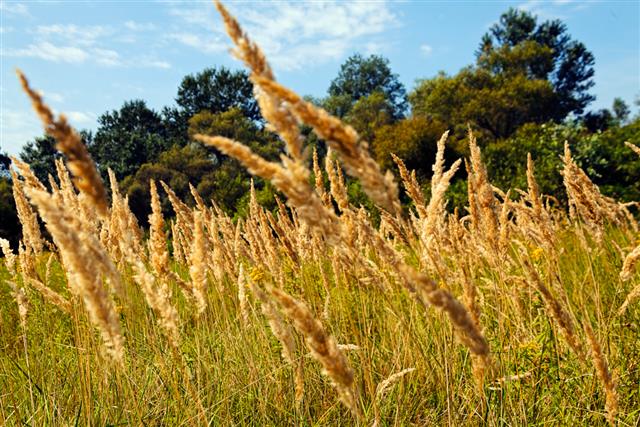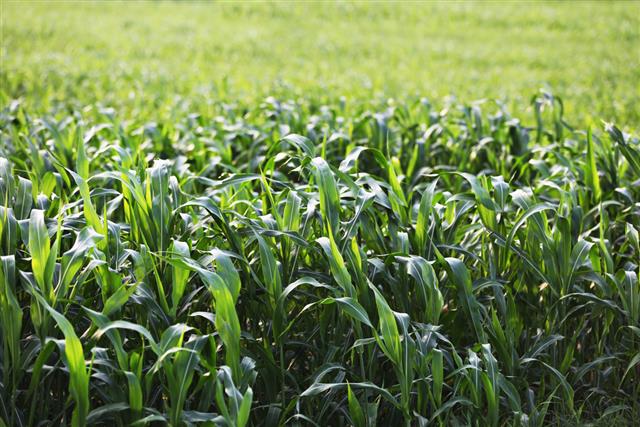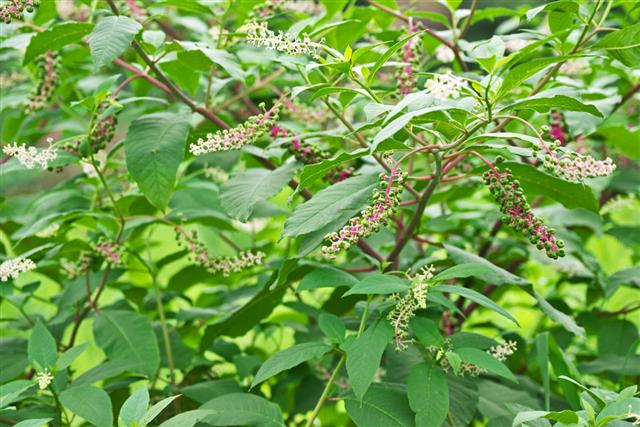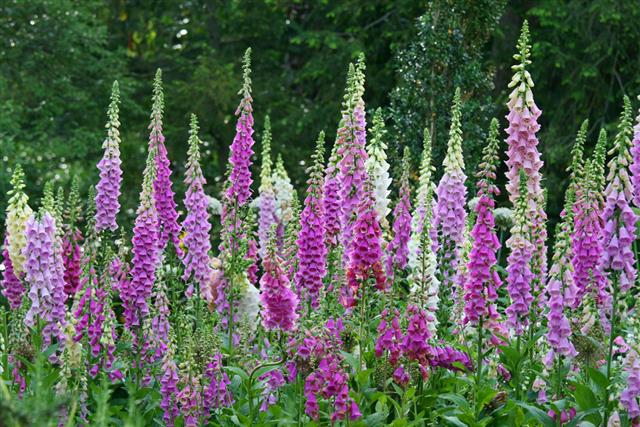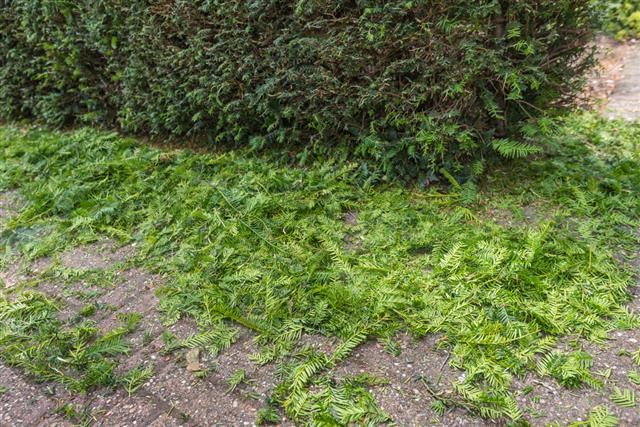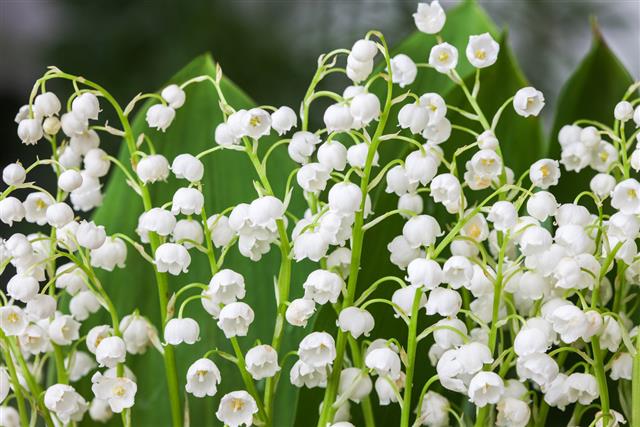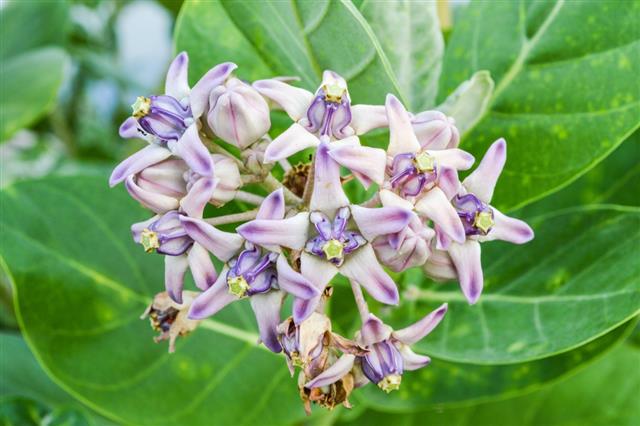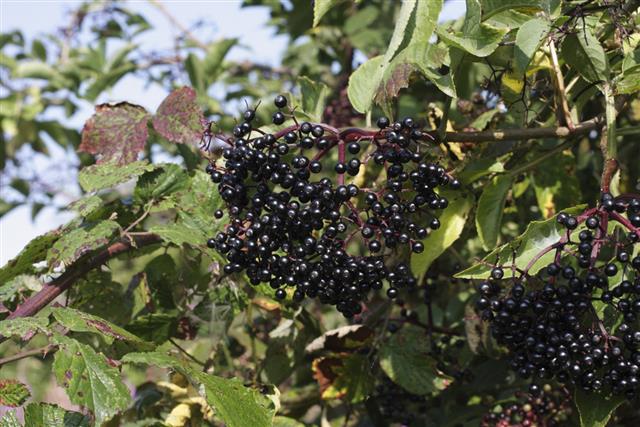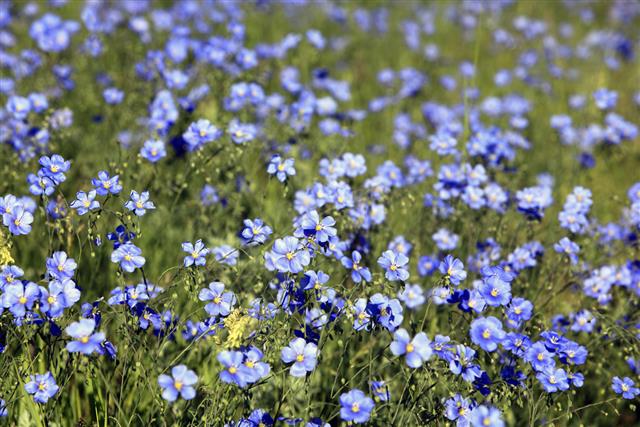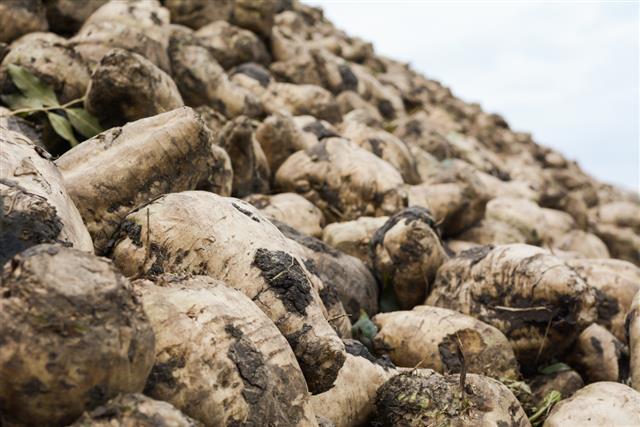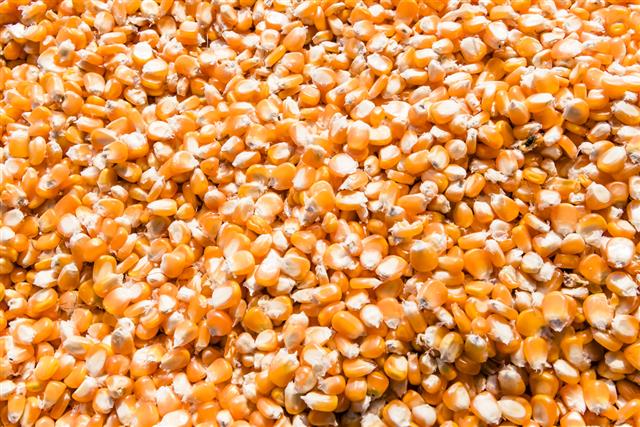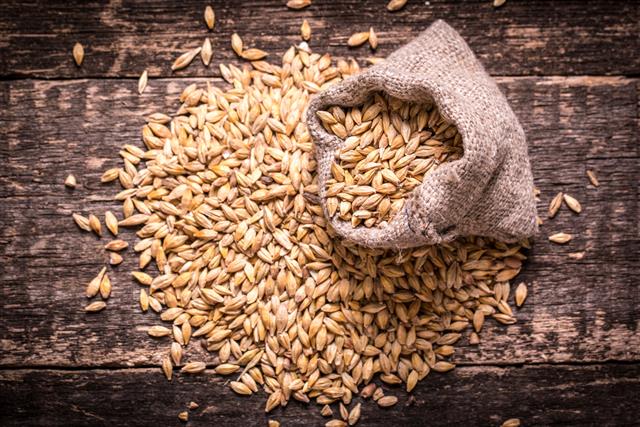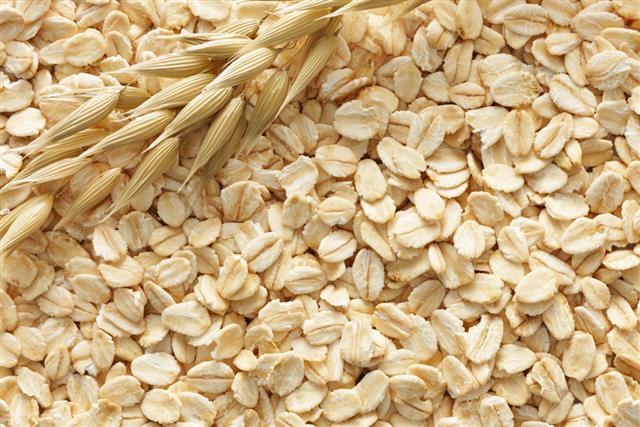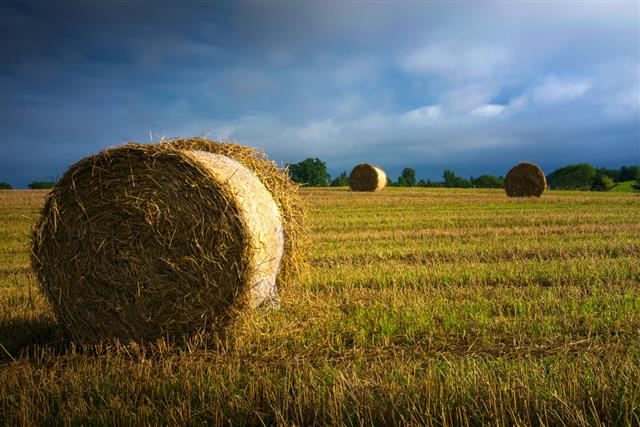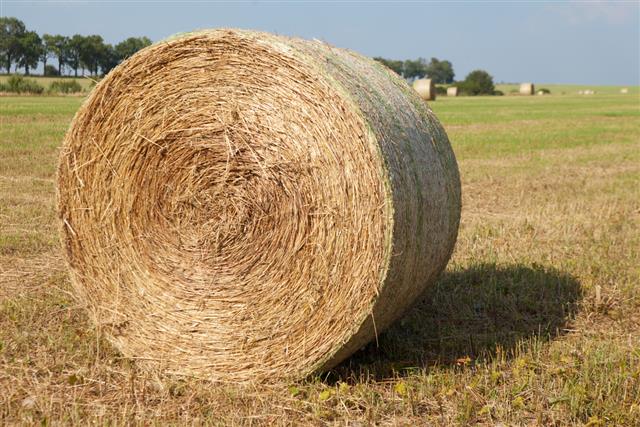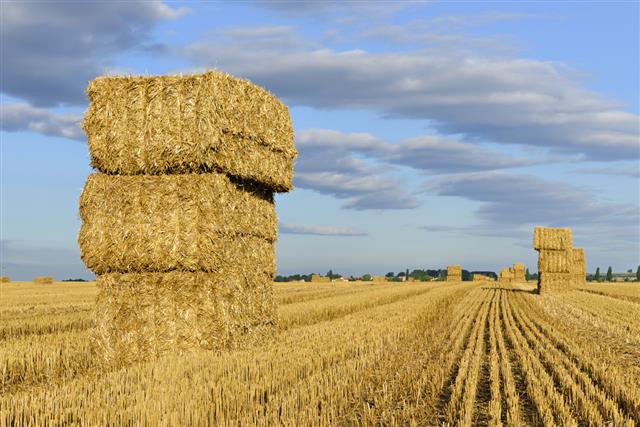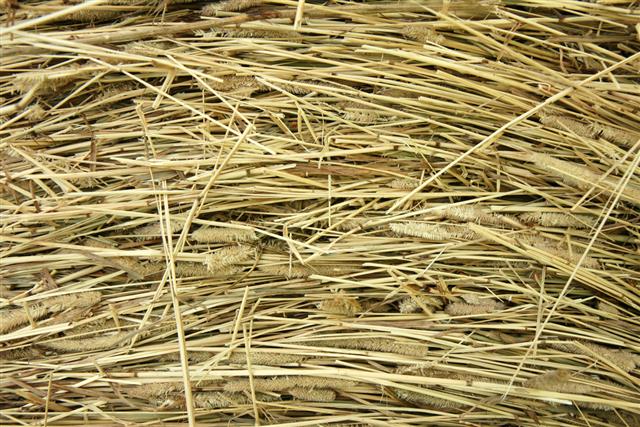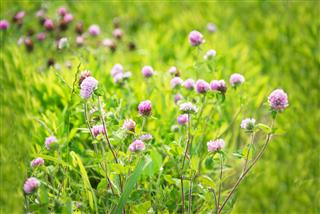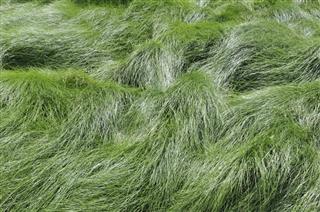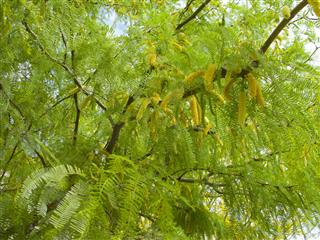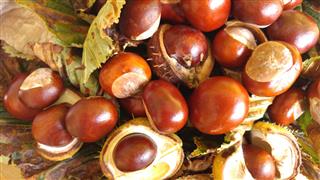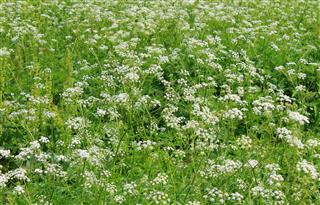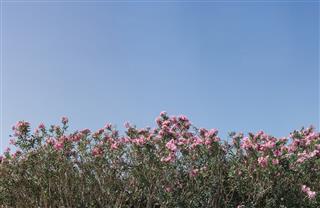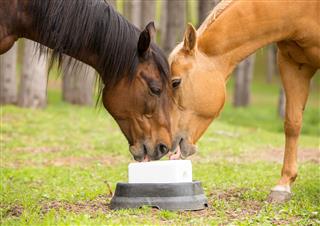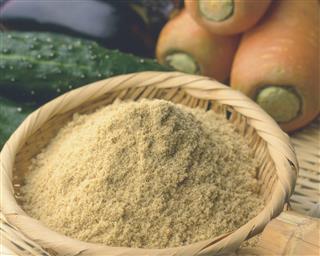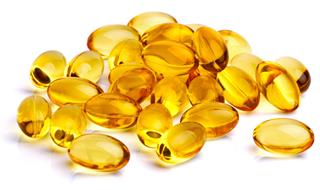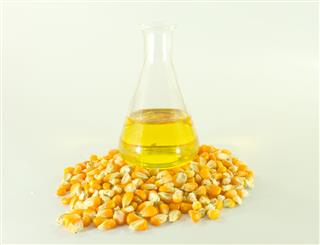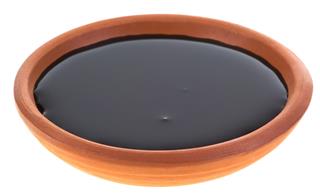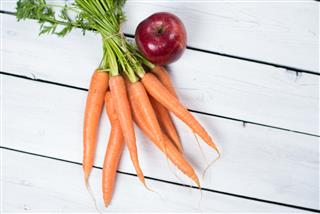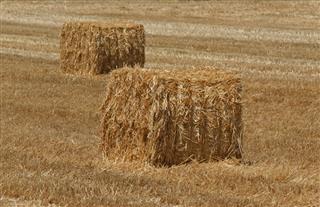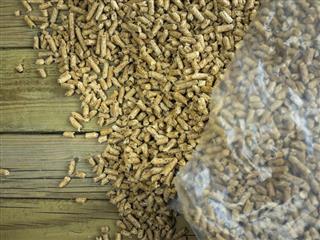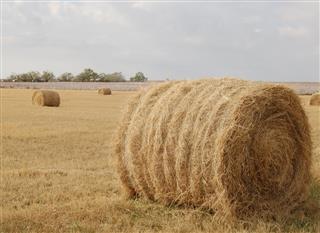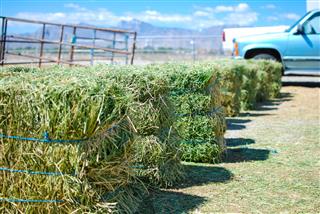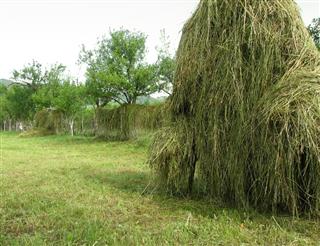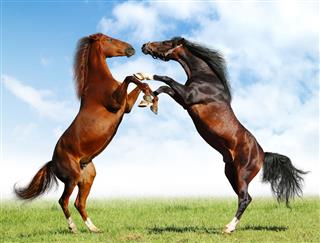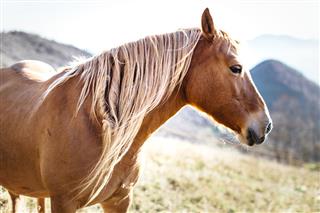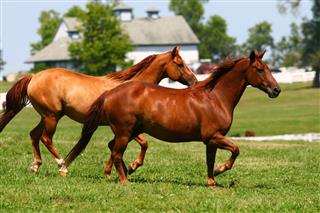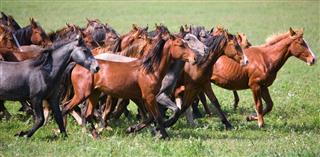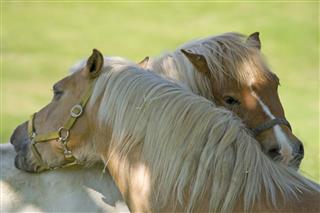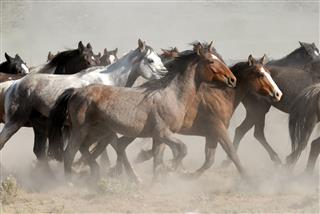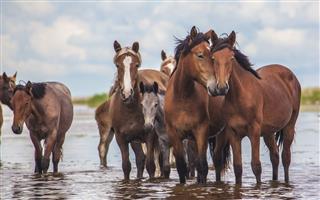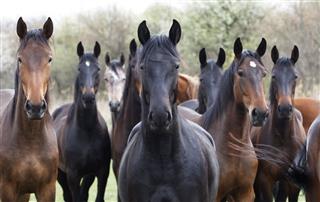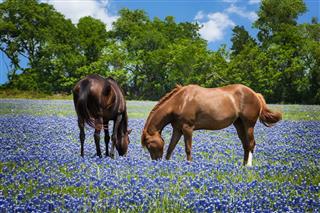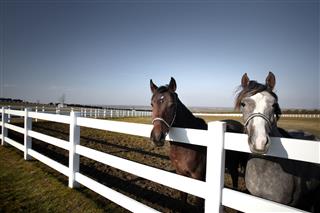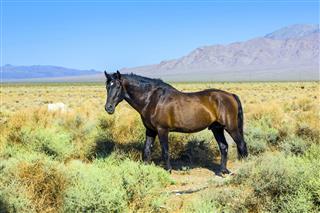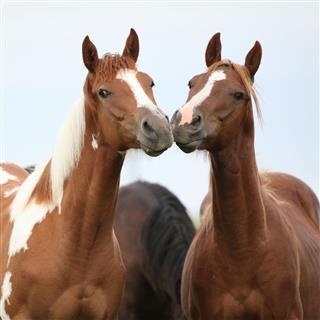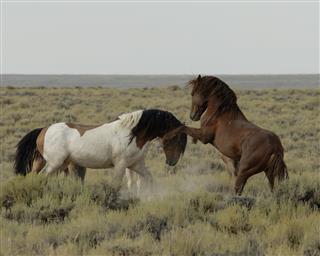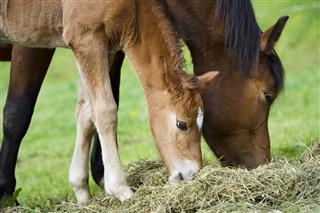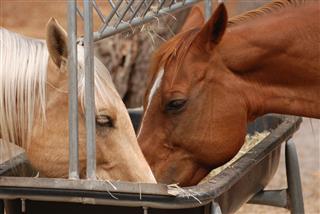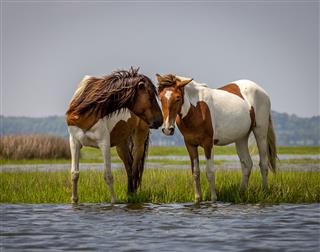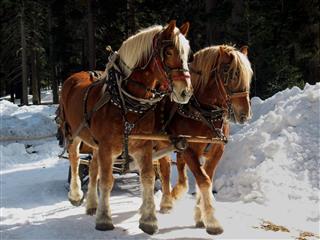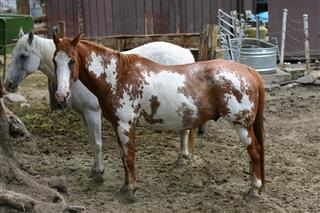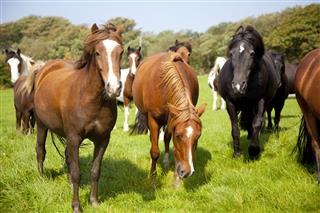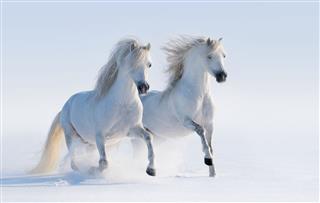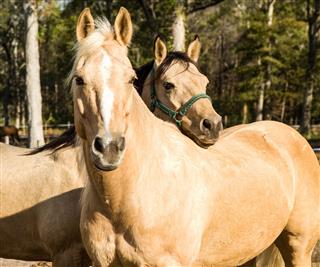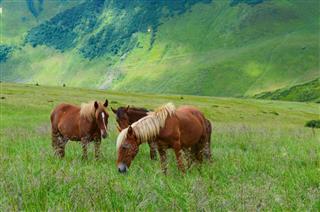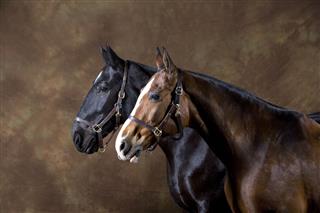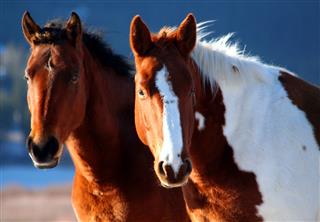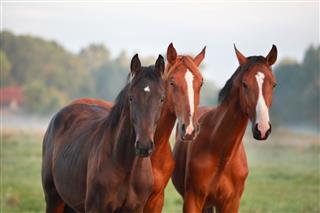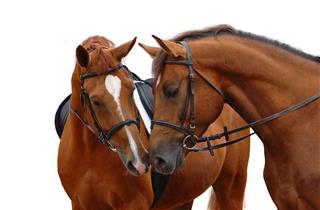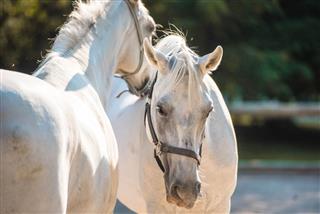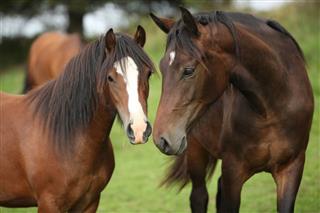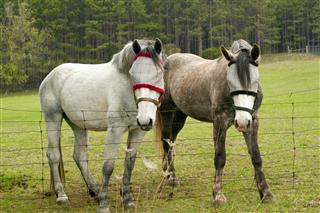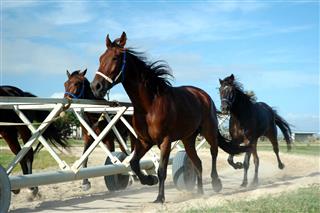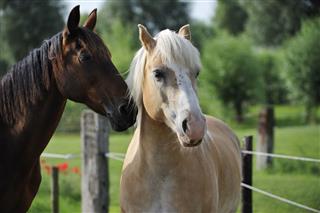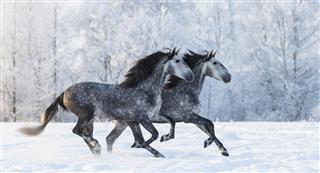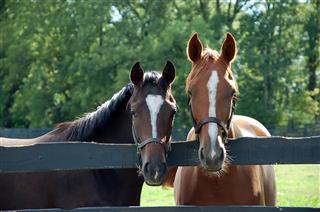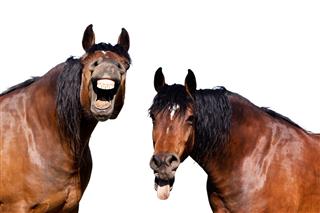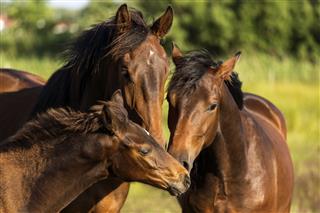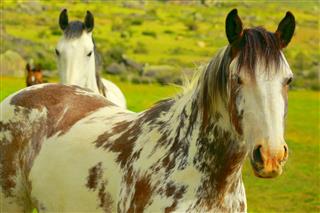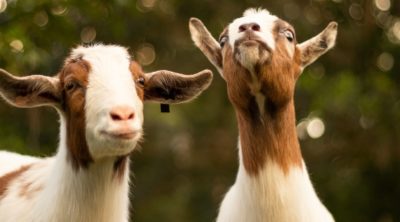
Horses basically eat pasture and hay. However, you can also feed them fruits and vegetables occasionally. Find out what are the food items that can be included in your horse’s diet, and what should be strictly avoided, through this PetPonder article.
Horses are grazing animals, and hence their diet consists of good quality hay and pasture. Horses are a member of the family Equidae, and they were first domesticated by humans in around 4000 BC. If you are considering to become a proud owner of this magnificent animal, then consider to acquire some basic knowledge about its diet.
Diet of a Horse
The amount of food that a horse requires depends mainly on its age, weight, overall health condition, and the level of physical activity. In general, a horse needs 2 to 2.2 pounds of feed for every 100 pounds of its body weight. Primarily, the diet of a horse should include hay and pasture. The digestive system of herbivores like horses is adapted to digest grass and other plant materials. Following are some foods that your horse would surely love to relish.
Pasture and Hay
Pasture and hay are the staple food of horses. In fact, horses can survive on pasture and hay only, if they are not doing any heavy work. But be sure to feed them quality hay and pasture. While purchasing hay for your horse, make sure that it is free of mold and dust. If you feed them moldy and dirty hay, they can develop various health problems, including colic and respiratory problems.
There are different types of hay, such as alfalfa, oat, bermuda, and grass hay like Timothy and orchard. You can find hay in the form of bales, pellets, and cubes. Alfalfa hay contains a very high level of proteins, as compared to grass hay. So, its excessive consumption can cause diarrhea, which should be kept in mind while feeding your horse alfalfa.
Concentrates
In addition to hay and pasture, concentrates are another important component of a horse diet. Concentrates are especially required for providing enough nutrition to a pregnant or nursing mare, as well as the highly active horses. The youngsters should also be fed concentrates in order to promote their growth.
The most common concentrates for horses are grains, like oats, barley, corn, and beet pulp. Beet pulp needs to be soaked in water for a while before feeding your horse. Sweet feed is another good concentrate, which is made by mixing grains with molasses. Concentrates are basically meant to supplement forage or hay to provide better nutrition.
Other Foods
Try giving them some carrots and apples. In fact, horses love to eat fruits and vegetables, and apples and carrots are the favorites in this category. Many horse owners prefer to give their horses an occasional ‘treat’. Such treats can be made with carrots, apples, oats, and molasses. You can also give your horse supplements like corn oil and cod liver oil. However, be sure to talk to a veterinarian in order to know the appropriate dosage of such supplements, and how frequently these can be given.
A small amount of rice bran can also be given to horses. But horses should be given only stabilized rice bran. Apart from these, salt blocks are very important for the health of your horse. Foods that horses usually eat are low in sodium and chlorine. Therefore, a trace mineralized salt block is ideal for proving these minerals. If your horse is not getting enough salt and minerals, you can observe the animal licking dirt.
Foods to be Avoided
Certain foods and plants are not good for horses. Wild blue flax, elderberry, milkweed, oleander, lily of the valley, water hemlock, yew, and foxglove can be toxic for horses. On the other hand, horse chestnut, pokeweed, azaleas, mesquite, and laurel can cause diarrhea and colic in horses. In addition to these, it is better to avoid giving them Sudan grass, ryegrass, tall fescue, as well as a large amount of red clover, sweet clover, and bran rice or wheat.
In addition to the aforementioned foods, horses need plenty of water, about 38 to 45 liters of water per day. So, make sure that enough clean and freshwater is available for them. Another important point to be kept in mind while feeding horses is that they tend to overeat, which can cause laminitis. Therefore, it is better to feed them small and frequent meals.
